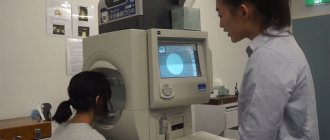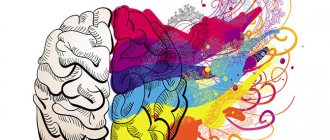Schizophrenia is one of the most diverse and mysterious mental disorders of modern humanity. Extensive symptoms of the disease manifest themselves to varying degrees and are characterized by variability in their course.
The most common type (accounting for more than 70% of all mental disorders), which entails severe behavioral and emotional disorders, is paranoid (paranoid) schizophrenia. This is a mental deviation, which is based on delusional reality, hallucinatory phenomena that have no real basis and are difficult to correct.
The word “paranoia” literally means “contrary to meaning” when translated from ancient Greek. The first manifestations of the disease appear quite late, at the age of 30-35, and are characterized by increased irritability, hostility, suspicion, etc.
Symptoms
A doctor can definitely diagnose paranoid schizophrenia only after a comprehensive examination, taking into account the presence of all symptoms. The main signs of a mental disorder in a patient are:
- deprivation of the integrity of mental functions;
- the presence of delusional states and hallucinations;
- disturbances in the area of thinking;
- gradual impoverishment in the emotional and volitional spheres.
Experts include delusions and hallucinations as the main (primary) symptoms of the disease. They appear at different stages of the disease and may differ in severity.
Delusion arises as a result of a person’s distorted perception of the world around him, and consists of a false idea of what is happening around him. Most often, this condition manifests itself through the patient’s feeling of persecution. At the same time, the schizophrenic behaves aggressively and hostilely towards others.
A delusional state in paranoid schizophrenia is often accompanied by hallucinations - false or distorted images and phenomena, a deceptive perception of what is happening around. They can be auditory, visual, tactile, etc. The patient hears non-existent voices, which can be both informative and commanding in nature.
Paranoid schizophrenia, aggravated by command-type hallucinations, poses a particular danger to the patient and the people around him.
Delusional states can also manifest themselves through:
- outbreaks of attacks of jealousy;
- pathological, unhealthy love, infatuation or passion;
- delusions of genius and greatness, etc.
Impaired thinking abilities entail a disorder in the functions of the musculoskeletal system. Paranoid schizophrenia in an advanced state leads to gradual degradation, which ends with the complete collapse of the personality. A schizophrenic loses the ability to interact with the world around him, losing all logical ideas about it.
A schizophrenic personality defect, as a result of the patient’s inaction and refusal of therapy, includes a disorder of speech function, decreased initiative, and social activity. It is possible to prevent negative symptoms without allowing the destruction of personality only with the help of a qualified specialist.
The symptoms of such a mental disorder in men and women are not fundamentally different. Family plays an important role in a woman's life. Therefore, her delusional ideas and hallucinations are reflected precisely in this plane. For example, a woman may experience painful experiences due to the fact that she sees a real (in her opinion) threat to the life and health of her child, husband, or close relatives.
In men, signs of paranoid disorder include delusional ideas of espionage and persecution. They may consider their wife’s non-existent lover, colleagues, neighbors, etc. to be “ill-wishers.”
Therapy for paranoid schizophrenia
If we talk about the treatment of paranoid schizophrenia, hallucinatory-paranoid syndrome (acute manifestations of the disease - delusions and hallucinations) must be stopped first. The doctor prescribes drugs from different groups (neuroleptics, antidepressants, nootropics) to alleviate the manifestations of the disease in a particular patient. To increase the effectiveness of therapy, at first the drugs can be administered intramuscularly or intravenously.
Each patient has different manifestations of the disease, so therapy is always prescribed individually.
After recovery from the acute state, the psychiatrist adjusts the neuroleptic therapy - selects the minimum dosage necessary to maintain remission. Psychotherapy improves quality of life and improves social functioning. Rational, cognitive-behavioral psychotherapy is used in individual and family formats. Read more about the treatment of paranoid schizophrenia.
In the case of schizophrenia of the paranoid type with a continuously progressive course, the main task is to slow down the progression of the disease and maintain the level of social life. Against the background of well-chosen therapy and psychotherapeutic training of family members, an improvement often occurs, which is regarded as a relatively high-quality remission.
Signs of delusion and hallucinations
The following behavioral factors may indicate the presence of auditory or visual hallucinations:
- a person talks to himself in the form of a conversation or remarks;
- at the moment when the patient becomes silent, those around him get the impression that he is listening to something. At the same time, the impression arises that he sees and hears what others do not see;
- causeless, hysterical laughter or, conversely, anxiety and concern may occur;
- During a conversation, it is difficult for the patient to concentrate on one topic.
The following signs indicate the presence of delirium:
- the individual’s attitude towards others changes sharply, unjustified hostility or isolation, alienation appears;
- statements become dubious, implausible, meaningful, and incomprehensible to others;
- a person begins to fear for his life or for the lives of loved ones; fear and anxiety are clearly manifested, which can be expressed in constantly locking doors, curtaining windows, checking food for the presence of poisons, etc.
It is necessary to react to the above behavior of the patient with the utmost restraint and delicacy. It is strictly forbidden to mock, argue with him, discuss his hallucinations, or detail them. The main thing in such a situation is to help the person feel protected, to inspire trust, and to carefully persuade them to see a doctor for advice. Relatives need to be especially vigilant towards a patient whose suicidal tendencies have worsened during the course of the disease.
Stages of paranoid schizophrenia
The delusional state that accompanies this mental disorder does not arise suddenly, but in the process of its final formation goes through three successive phases of development:
- waiting period. At this stage, the patient experiences a painful and anxious premonition of something. It seems to a person that he is on the eve of dramatic changes that will lead not only to changes in his personal life, but also in the world as a whole. The patient’s thoughts at this stage do not yet have a concrete form and are illusory in nature;
- phase of insight. The patient's premonition gives way to a sudden clearing of consciousness, when uncertainty and fog replace confidence in certain knowledge. A person at this stage of development of delusion is convinced that he is right;
- ordering phase. Delusional ideas acquire logical validity. Multiple details that previously had nothing in common with each other gradually form a holistic, complete picture. For example, if delusion manifested itself in persecution mania, then at this stage the schizophrenic accurately determines the circle of his “enemies” and “exposes” the methods of their negative influence. He will interpret the events and phenomena that occur around the patient during this period based solely on the ideas of pressure and oppression. The external and internal worldview of a schizophrenic at this stage methodically builds a single chain, according to which he is persecuted by everyone and everywhere. The plot of this nonsense occupies all the patient’s thoughts, becoming the only true worldview. The situation is aggravated by the categorical impossibility of convincing him.
Diagnostics
A psychiatrist, conducting an examination, assesses the dynamic development of symptoms, finds out the order and pattern of their manifestation over a certain period of time. It is important to determine the cause-and-effect relationships that provoked the intensification of the development of mental disorders.
The main method for diagnosing paranoid schizophrenia is clinical and anamnestic examination. During this process, the doctor finds out the following:
- whether the patient has a hereditary predisposition to the disease;
- the onset of symptoms of mental deviation, factors (events, phenomena, episodes) that became their provocateurs;
- the dynamics of the development of the disease, the study of which makes it possible to predict its further course.
A competently structured conversation with a patient by a specialized doctor is the main method of diagnosing the disease. Therefore, you should not refuse to communicate with a specialist or describe your condition to him superficially. Timely diagnosis and proper therapy gives a chance to avoid possible complications and will help to adapt the patient to the world around him as much as possible.
Modern methods for diagnosing the paranoid form of mental illness include:
- neurotest;
- neurophysiological test system.
These methods (laboratory and instrumental) make it possible to make an accurate diagnosis and determine the severity of the ongoing process. This allows you to select the most adequate therapy and promptly and timely adjust the dosage of medications.
Treatment of hallucinatory-paranoid schizophrenia at the ROSA clinic
ROSA is one of the best private psychiatric clinics in Russia, located in Moscow near VDNKh. The clinic provides treatment and rehabilitation for the hallucinatory-paranoid form of schizophrenia.
Advantages of treatment at the ROSA clinic:
- We work around the clock.
- Doctor visiting your home.
- Own sanatorium-type hospital.
- Hospitalization. Help with involuntary hospitalization.
- Complete examination of the mental sphere.
- Safe methods of treatment and rehabilitation.
- Psychological assistance to relatives.
Causes
Among the main reasons that can provoke the appearance of the paranoid type of schizophrenia are the following:
- genetic predisposition. The risk of developing the disease increases in individuals in whose family there have been recorded cases of mental disorders;
- physiological disorders of the central nervous system and brain;
- regular stressful situations, prolonged mental and psychological stress, leading to exhaustion of the human nervous system.
The paranoid form of mental illness is chronic or episodic in nature, which is accompanied by primary symptoms of the disease.
Schizophrenics, regardless of the form of the disease, are strictly prohibited from consuming alcoholic beverages, narcotic and psychotropic drugs, which can lead to changes in consciousness.
Dealing with the side effects of antipsychotic medications
Long-term use of antipsychotics very often leads to drug intolerance. It manifests itself as side effects on the nervous system and the development of complications (tardive dyskinesia and neurolepsy). In such situations, antipsychotics are prescribed that do not cause or practically do not cause unwanted neurological symptoms (Leponex, Zyprexa, Rispolept). If dyskinesia occurs, antiparkinsonian drugs (akineton, napam, cyclodol, etc.) are included in the therapy. If depressive disorders appear, antidepressants are used (rexetine, anafranil, ludiomil, amitriptyline, etc.). You should know that all prescriptions are made and adjusted by a doctor. Spontaneous discontinuation of medications is prohibited. This is fraught with a high risk of relapse.
Treatment
Paranoid schizophrenia is a dangerous and complex mental disorder that can lead to certain negative consequences for the patient or the people around him (physical, legal, economic, etc.). Such patients need constant monitoring from medical professionals and relatives (to convince them to start or continue therapy, monitor medications, etc.).
Depending on the complexity of the disease, the psychiatrist prescribes the most effective therapy:
- medicinal. Consists of prescribing antipsychotic drugs, detoxification, insulin comatose therapy, and the use of lithium carbonate;
- psychotherapeutic. It comes down to establishing trusting contact between the doctor and the patient, regular sessions;
- electroconvulsive therapy. It is used exclusively in cases of resistance (not perception, resistance) of the patient to the drug treatment method.
After achieving a positive result of treatment, the patient is prescribed stabilizing therapy, in which the doses of the drug used are gradually reduced. After this comes the turn of maintenance therapy, the main purpose of which is to minimize the risk of relapse. During this period, it is important to adhere to all recommendations and prescriptions of the attending physician, without taking a break from taking prescribed medications.
For undisciplined or forgetful patients, specialists use deposited forms of antipsychotics, which are administered at intervals of several weeks or months. Unconditional adherence to all the doctor’s recommendations allows the patient to achieve the highest possible degree of remission.
Pharmacology and psychotherapy in the treatment of schizophrenic disorders
The first choice drugs are antipsychotics. These drugs have an antihalucinatory and sedative effect, are able to stop delusional and obsessive states, and return the patient to relative clarity of thinking. All antipsychotic drugs prescribed to a schizophrenic are taken in strict doses and exclusively under the supervision of the attending physician. For example, "Aminazine".
The drug is selected strictly according to the needs of each patient, the dose and duration of the course are adjusted during the recovery process. At the same time, psychotropic drugs of other groups are prescribed that affect the behavior, emotional stability and mood of a schizophrenic. We need corrective agents that reduce the level of anxiety, normalize sleep and help the patient return to the real world.
Psychiatrists work with schizophrenics, since this disease requires an extremely extensive knowledge base. You cannot trust the health of the sick person to psychologists, otherwise the situation will worsen and the personality will degrade irreversibly. The course of psychotherapy is indicated to take place in an inpatient psychiatric clinic.
The doctor’s task is not only to prevent the progression of the disease, but also to teach a man to independently recognize its phases and signs of exacerbation. Abstract-associative methods of work, hypnotic practices and deep psychoanalysis are strictly prohibited when working with such patients.
The patient must be able to critically assess his condition, distinguishing hallucinations from reality, correlate his actions with the emotional state of the people around him, and adequately express his desires.
Group cognitive behavioral or art therapy is best suited for these purposes. A psychiatrist can help with issues of social adaptation using occupational therapy methods.
Therapy should be comprehensive, including both medication and courses of psychiatric care. This is the only way to influence the processes occurring in the “sick” brain.
Psychiatric practice knows many examples when it was possible to achieve stable and long-term remission. If the disease is ignored, then personality changes will lead to chronic depression and, as a result, to possible suicide.
For more information about what schizophrenia is, watch the video:
This article has been verified by a current qualified physician, Victoria Druzhikina, and can be considered a reliable source of information for site users.
Rate how helpful this article was
4.8 4 people voted, average rating 4.8
Did you like the article? Save it to your wall so you don’t lose it!
Forecasts
Regardless of the type of schizophrenia, it is classified as an incurable mental pathology. The prognosis of the disease is particularly influenced by the timeliness of the start of treatment, its intensity and combination with social rehabilitation measures.
According to research by practicing psychotherapists, patients who sought help in a timely manner and followed all the instructions and recommendations of doctors experienced stable remission followed by complete social rehabilitation.
Do not despair if you or one of your family and friends has been diagnosed with paranoid schizophrenia. In modern psychiatry, innovative methods are used to treat mental pathologies. Timely, competent diagnosis, unquestioning compliance with all the requirements of the attending physician, support from loved ones provide a chance to minimize the negative consequences of the disease and normalize the quality of life.
Advice for relatives of someone with schizophrenia
Schizophrenia is a serious illness, both for the person himself and for his close circle. However, if a person is not able to understand that he is sick, the family is simply obliged to recognize the disease and seek help from a psychiatrist. It's time to dispel existing stereotypes that it is impossible to help a person with schizophrenia. Maybe. With properly selected therapy, long-term, high-quality remissions are achieved with full restoration of ability to work over a long period of time. The main thing is to recognize the disease in time and begin treatment. If this is not done, the person will usually face emergency hospitalization in a state of psychosis. Don't wait until the worst happens to take action. Relatives are the only people who can change the life of a person with schizophrenia for the better. The quality of life of patients suffering from this disease largely depends on their support and their participation in the recovery process. If you suspect someone close to you has schizophrenia, contact a psychiatrist immediately.
We also recommend reading the article about low-grade schizophrenia.









